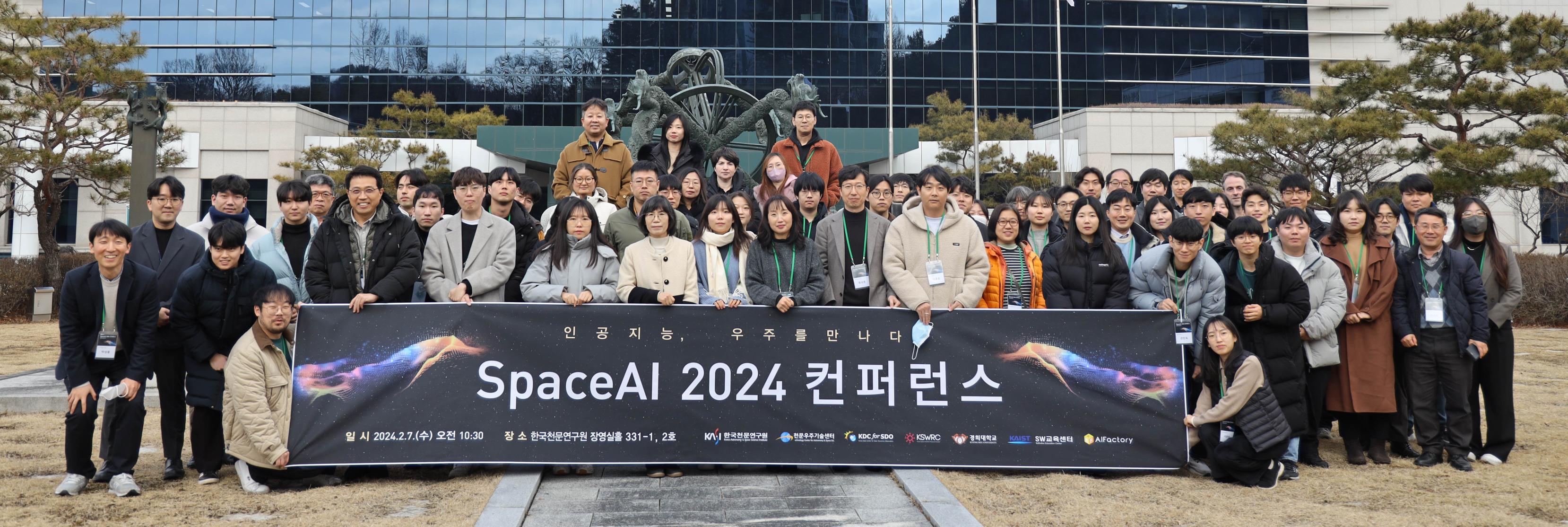2024
• Activities
- 2024.02 SpaceAI 2024 Conference
2023
• Activities
- 2023.04 ~ at the Spring Conference of the Korean Space Science Society
- 2023.05 Call for R&D proposals in the SpaceAI Scientist Track
- 2023.07 Kick-off meeting to build teams for peer-reviewed, selected research projects
- 2023.08 Workshop (Data preparation, critical design of AI models)
- 2023.08-10 Deployment and validation of AI models (beta version)
- 2023.10 Presenting R&D results of the SpaceAI program at the Autumn Conference of the Korean Space Science Society
• Research projects conducted in the SpaceAI 2023 Scientist Track
- - Prediction of SPE proton flux profiles (Kangwoo Lee et al.)
- - Prediction of solar active region evolution (Harim Lee et al.)
- - Deep learning vs. solar photospheric flux transport (Hyun-Jin Jeong et al.)
- - Detection and cataloging of magnetic clouds from solar wind observations (Roksoon Kim et al.)
- - Modeling of extreme ultraviolet fluxes based on X-ray fluxes from solar flares (Sung-Hong Park et al.)
- - Development of X-ray and extreme ultraviolet flux prediction models using deep learning for solar flares (Jeong-Heon Kim et al.)
- - Calculation of 3D SHARP parameters from line-of-sight solar magnetic field maps using deep learning techniques (Jihyun Son et al.)
- - Development of automatic detection method for magnetic waves using deep learning image clustering (Jaeyoung Kwak et al.)
- - Machine learning cross-calibration study between satellite data and magnetic models for magnetometers (Hoseop Song et al.)
- - Image analysis using AI models trained on CubeSat OBC for space astronomy observations (Byungkyung Cho et al.)
- - Optimization of polishing process for space astronomical telescope mirrors through correlation analysis of input and output (Jeong-Yeol Han et al.)


